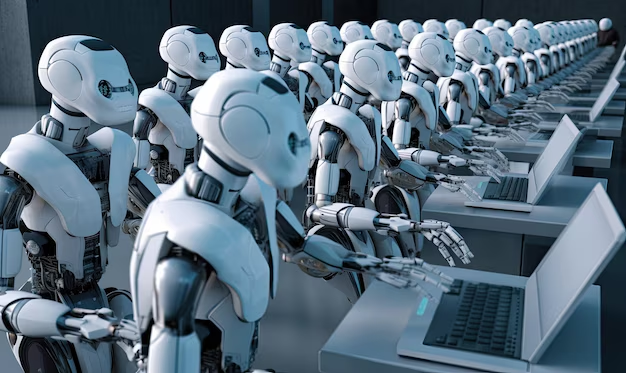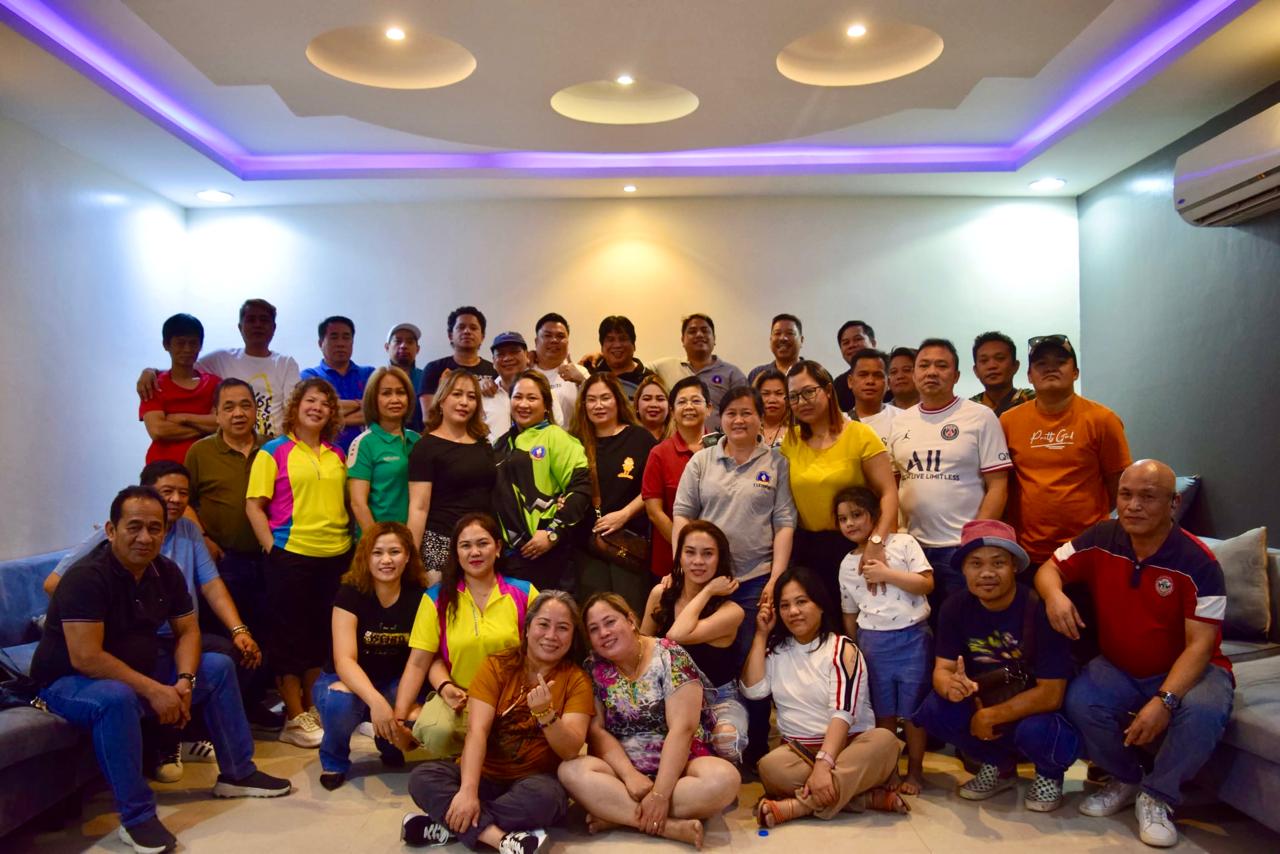For decades, Artificial Intelligence has been the star of science fiction. But the conversation has shifted from “if” to “when”. We’re no longer just talking about smarter assistants and better recommendations; we’re peering over the horizon at a future defined by the Singularity—the hypothetical point where AI surpasses human intelligence and begins to improve itself at an exponential, uncontrollable rate.
What does daily life look like on the other side of that event? The implications are vast, but two pillars of human society—work and education—would be fundamentally and irrevocably transformed, and not always in comfortable ways.
The End of the Worker: Why Your Job is Just a Line of Code
Let’s be brutally honest: from a pure, bottom-line business perspective, human labor is inefficient.
We get sick. We need sleep. We demand raises. We have emotional bad days. We require expensive benefits, office spaces, and legally-mandated breaks. We can only work 40-60 hours a week before our performance degrades.
Now, imagine the alternative: a humanoid robot workforce.
- Maximized Uptime: These entities work 24/7/365. No holidays, no sick days, no vacations.
- Peak Efficiency: Their performance is not just consistent; it’s constantly optimized. An AI surgeon doesn’t get tired during a 10-hour operation. An AI financial analyst processes global market data in microseconds.
- Zero Overhead: No health insurance, no retirement plans, no payroll taxes. The initial capital expenditure is high, but the long-term operational cost approaches zero.
- Unmatched Precision: From manufacturing microchips to preparing complex legal contracts, the error margin is infinitesimal.
The Corporate Incentive is Overwhelming. For a company owner, the math is simple. Replacing a human employee with a $100,000 robot that works three shifts, doesn’t make mistakes, and never unionizes is a financial no-brainer. It’s not about malice; it’s about market competition. The first company to fully automate its supply chain, its creative department, and its customer service will achieve profit margins its human-dependent competitors cannot match. This isn’t just replacing blue-collar jobs; it’s about architects, graphic designers, coders, accountants, and middle managers.
The result? A seismic shift in the labor market where the vast majority of tasks humans currently get paid to do are performed more efficiently and cheaply by machines. The concept of “earning a living” through traditional work becomes obsolete for a large segment of the population.
The Crisis of Purpose: “Why Am I Even in School?”
This tectonic shift in the workforce sends a shockwave backward through time, directly into our classrooms. The entire modern education system is built on a foundational promise: study hard, get a degree, and you will get a good job.
But what happens when that promise is broken?
When students look ahead and see a world where the careers they are preparing for—doctor, lawyer, engineer, artist—are dominated by AIs that are infinitely more knowledgeable and skilled, a profound sense of futility can set in.
- The Devaluation of Knowledge: Why spend a decade memorizing case law when an AI can instantly reference every legal precedent in history and formulate a perfect argument? Why study for years to become a radiologist when an AI can detect anomalies with superhuman accuracy?
- The Motivation Crisis: The driving force behind education—the prospect of a stable and fulfilling career—evaporates. If the goalpost (the job) disappears, the race (years of strenuous study) feels pointless. Enrollment in traditional professional degrees could plummet.
- The “Useless” Degree: A generation could grow up believing that the very act of specialized human learning is an anachronism, a holdover from a bygone era before the Singularity.
Beyond the Dystopia: A Glimmer of a New Humanity
This picture looks bleak—a future of mass unemployment and existential despair. But is that the only possible outcome? Perhaps not. The end of work as we know it could force us to redefine human value and purpose.
- The Redefinition of “Work”: Work may shift from tasks to values. Roles that require deep empathy, ethical judgment, and human connection—elderly care, community building, spiritual guidance, and pure scientific exploration driven by curiosity—could become paramount. The “job” might be to be more human, not more efficient.
- The Shift in Education: The education system would need a complete overhaul. Instead of training for specific jobs, the focus would move to:
· Philosophy & Ethics: Navigating the moral complexities of a world run by super-intelligent AI.
· Creativity & Original Thought: Pushing boundaries in art and science in ways an AI, which operates on existing data, cannot.
· Emotional Intelligence & Interpersonal Skills: Fostering community, empathy, and leadership.
· Leisure & Life Craft: Learning how to live a fulfilling life of purpose, passion, and continuous personal growth in a post-scarcity world. - The Economic Reckoning: Such a future would necessitate radical socio-economic models, like Universal Basic Income (UBI), divorcing survival from employment. This could free humans to pursue passions, arts, community service, and lifelong learning for its own sake.
The Immediate Concern: What Career Should You Choose in the Shadow of AI?
While the Singularity represents a theoretical endpoint, the pressure is already mounting. Today’s students and professionals aren’t just planning for a distant future; they are making decisions in an environment where AI is actively displacing roles and reshaping industries. The question “What should I do with my life?” is now haunted by a new, more pragmatic one: “Will a robot take this job before I retire?”
The relentless corporate drive for efficiency and profit, as outlined earlier, means that any role that can be standardized, automated, or optimized will be. This isn’t a vague threat; it’s a current event happening in slow motion. Therefore, choosing a career path requires a new kind of literacy—AI-Resilience Literacy.
Instead of asking “What jobs are safe?”—a question with a shrinking list of answers—we should ask, “What human capabilities are hardest to automate?”
Here are the career pillars and skillsets likely to withstand the AI onslaught, at least for the foreseeable future:
- The Creators, Innovators, and Visionaries
AI is exceptional at remixing and optimizing existing data, but it lacks true consciousness, life experience, and the desire to push boundaries for the sake of meaning.
- Careers: Pioneering scientific researchers (theoretical physics, groundbreaking biology), strategic entrepreneurs, visionary artists and composers, and cutting-edge filmmakers. These roles don’t just follow rules; they invent new ones.
- Why They’re Resilient: They are defined by asking “What if?” and “Why not?”—questions that stem from human curiosity and a desire to leave a legacy, not just solve a predefined problem.
- The Human Connectors and Empathy Experts
An AI can diagnose an illness, but it cannot hold a patient’s hand. It can analyze legal precedents, but it cannot understand the nuanced emotional state of a client in a custody battle.
- Careers: Mental health therapists, addiction counselors, elite educators and mentors, hospice and palliative care workers, conflict mediators, and community leaders.
- Why They’re Resilient: These roles are built on deep, authentic empathy, trust, and the complex, non-verbal communication that forms the bedrock of human relationships. This is not data processing; it’s soul-to-soul connection.
- The Craftspeople and Dexterity Masters
While humanoid robots will excel at repetitive assembly, the unpredictable physical world still poses immense challenges. The subtle judgment, fine motor skills, and adaptability of a human expert in a dynamic environment are incredibly difficult to replicate.
- Careers: Skilled trades like expert-level plumbing and electrical work (for unique, old homes), high-end custom furniture makers, surgical specialists in novel procedures, and athletes.
- Why They’re Resilient: They require a real-time fusion of sensory feedback, creative problem-solving, and physical dexterity in unstructured environments. Every job is a unique puzzle.
- The Regulators, Ethicists, and Stewards
As AI systems become more powerful and integrated into our lives, the need for humans to govern them becomes more critical, not less. Someone must program the goals, set the ethical boundaries, and be accountable.
- Careers: AI Ethics Officers, technology policy makers, cybersecurity experts (hunting AI-exploiting hackers), and forensic analysts who audit AI decision-making for bias.
- Why They’re Resilient: These roles require a deep understanding of human morality, law, and societal consequences. They answer the question “Should we?” not just “Can we?”
The New Mindset: Become Irreplaceably Human
The common thread is that safety no longer lies in mastering a specific set of knowledge, but in cultivating uniquely human skills:
- Critical Thinking & Complex Problem-Solving: Not just solving the problem in front of you, but defining what the problem really is.
- Creativity & Originality: Generating ideas that are novel, not just iterative.
- Emotional & Social Intelligence: Leading, inspiring, negotiating, and caring for others.
- Adaptability & Lifelong Learning: The willingness to continuously reinvent yourself as the world changes.
This is what you should be investing in. When you choose a career path, audit it against these skills. If the role is primarily about following instructions, analyzing standardized data, or performing repetitive tasks, you are in the direct line of fire from a company owner who sees you as a cost to be minimized.
Conclusion: The Challenge and The Opportunity
The arrival of the Singularity and advanced humanoid robots presents us with our greatest challenge: to find our place in a world where our traditional economic and intellectual superiority is no longer a given.
The fear that our jobs and studies will become useless is valid. But it also contains the seed of a profound opportunity. It forces us to ask the most important question: If we didn’t have to work, what would we choose to do? What makes us uniquely human when the mechanical value of our labor is zero?
The future may not be about humans competing with AI, but about humans, supported by AI, finally focusing on what truly matters. The path there, however, will be the most disruptive and psychologically challenging transition in human history.
By: Dx






 then choose "Install".
then choose "Install".